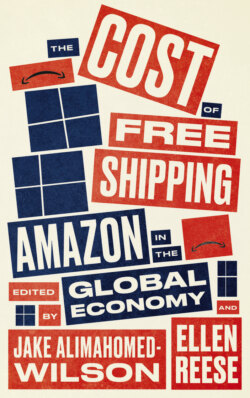Читать книгу The Cost of Free Shipping - Группа авторов - Страница 13
На сайте Литреса книга снята с продажи.
AN INCREASINGLY COMPLEX AND MULTIFACETED CORPORATION
ОглавлениеAmazon is far more than simply a major online retailer. Indeed, “no other tech company does as many unrelated things, on such a scale, as Amazon,” Duhigg reported in The New Yorker in 2019.37 Overall, in 2018, Amazon “collected” US$122 billion directly from online retail sales, and another US$42 billion by “helping other firms sell and ship their own goods.”38 In addition, during that same year, Amazon earned US$26 billion from its Web-services (AWS) division39 that sells cloud computing services—i.e., storage space, bandwidth for website hosting, and processing power—to individuals, and companies such as Netflix and Instagram,40 and Amazon itself.41 Although AWS supplies 10 percent of Amazon’s revenues, the company’s operating income, or the funds remaining after expenses are accounted for, “dwarfs any other sector,” pulling in US$606 million more than Amazon made in North American sales in 2016.42 Moreover, Amazon took in US$14 billion in Amazon Prime and other subscription services, “hundreds of millions of dollars from selling the Echo,” US$17 billion from sales at more traditional (off-line) brick-and-mortar stores, including Whole Foods, and the fully automated Amazon Go stores, along with US$10 billion in advertising sales and other activities.43 Analysts reported in 2019 that banks and credit unions were bracing for the coming Amazon “invasion” of banking.44 At that time, Amazon was already funding small-business loans, reducing fees for merchants who use Amazon Pay,45 and seeking to compete with prepaid wireless providers.46
Business analysts diverge over the reasons for Amazon’s rapid growth, with some pointing to its use of a business school strategy known as the “flywheel,” “loosely defined as a sort of self-reinforcing loop. Where possible, projects [are] to be structured to bolster other initiatives underway at the company.”47 More critical analyses, including our own, highlight the role of neoliberal policies and politics, such as the weak enforcement of antitrust laws, corporate welfare, and weak labor laws in the United States and other countries, which have facilitated the rise of Amazon’s monopoly power and its exploitative labor and business practices.48
